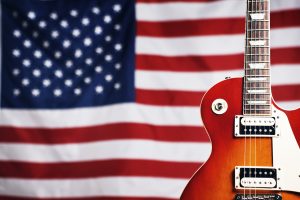 Moments before former President Donald Trump took to the stage at a Montana rally this August, Celine Dion’s 1997 hit, “My Heart Will Go On,” blasted over the speakers while a clip appeared onscreen. It took less than 24 hours for the five-time Grammy winner’s team and Sony Music Entertainment Canada to issue a statement on social media saying that “in no way is this use authorized, and Celine Dion does not endorse this or any similar use.” Amid a heated political season, it’s not unusual for candidates to clash with the artists whose music they promulgate on the campaign trail. In Trump’s case, though, using a video compounded the legal complications. While political licensing for music typically needs approval from the recording artist, video playback requires approval from both the artist and composer. In theory, this fact would make it less risky for campaigners to stick with audio-only soundbites of their favorite crowd-pumping tunes. However, there are still questions around general music licensing dos and don’ts when it comes to politics, even as performing rights groups work to clarify things. For now, the intersection of artists’ rights and political campaigns remains a murky legal crossroads, at best.
Moments before former President Donald Trump took to the stage at a Montana rally this August, Celine Dion’s 1997 hit, “My Heart Will Go On,” blasted over the speakers while a clip appeared onscreen. It took less than 24 hours for the five-time Grammy winner’s team and Sony Music Entertainment Canada to issue a statement on social media saying that “in no way is this use authorized, and Celine Dion does not endorse this or any similar use.” Amid a heated political season, it’s not unusual for candidates to clash with the artists whose music they promulgate on the campaign trail. In Trump’s case, though, using a video compounded the legal complications. While political licensing for music typically needs approval from the recording artist, video playback requires approval from both the artist and composer. In theory, this fact would make it less risky for campaigners to stick with audio-only soundbites of their favorite crowd-pumping tunes. However, there are still questions around general music licensing dos and don’ts when it comes to politics, even as performing rights groups work to clarify things. For now, the intersection of artists’ rights and political campaigns remains a murky legal crossroads, at best.
Articles Posted in Fair Use
Legal Riffs: Music Industry Alleges AI Is Out of Tune
In late June, Universal Music Group (UMG) Records, Sony Music Entertainment, and other major record labels filed two complaints against two generative artificial intelligence (“gen AI”) music startups, Suno, Inc. (Suno) and Uncharted Labs, Inc. (Udio). The concurrently filed complaints allege that the gen AI technology produced by Suno and Udio directly infringes on copyrights owned by these record labels.
Colleagues Shani Rivaux, Macarena Fink and Catherine Perez provide a briefing on these complaints in their recently published client alert, “Legal Riffs: Music Industry Alleges AI Is Out of Tune.”
Does the Fair Use Exception Shield Ivanka Trump from Artists Who Want Nothing to Do with Her?
 Much has been written about how the Trump family uses their name to market their own businesses, but the Trumps are equally gifted at trading on others’ notoriety to promote themselves and their businesses. Consider the tweets or public disclosures that follow after the President-elect appears with or receives correspondence from celebrities (à la Floyd Mayweather, Kanye West, Bill Belichick, etc.). But what happens when a celebrity or, as the case may be, an artist, has not consented to be a part of a social media post promoting a Trump brand? As Ivanka Trump is learning (again), use of an artist’s work without their permission can ignite social media firestorms and raise intellectual property issues.
Much has been written about how the Trump family uses their name to market their own businesses, but the Trumps are equally gifted at trading on others’ notoriety to promote themselves and their businesses. Consider the tweets or public disclosures that follow after the President-elect appears with or receives correspondence from celebrities (à la Floyd Mayweather, Kanye West, Bill Belichick, etc.). But what happens when a celebrity or, as the case may be, an artist, has not consented to be a part of a social media post promoting a Trump brand? As Ivanka Trump is learning (again), use of an artist’s work without their permission can ignite social media firestorms and raise intellectual property issues.
 Internet & Social Media Law Blog
Internet & Social Media Law Blog


